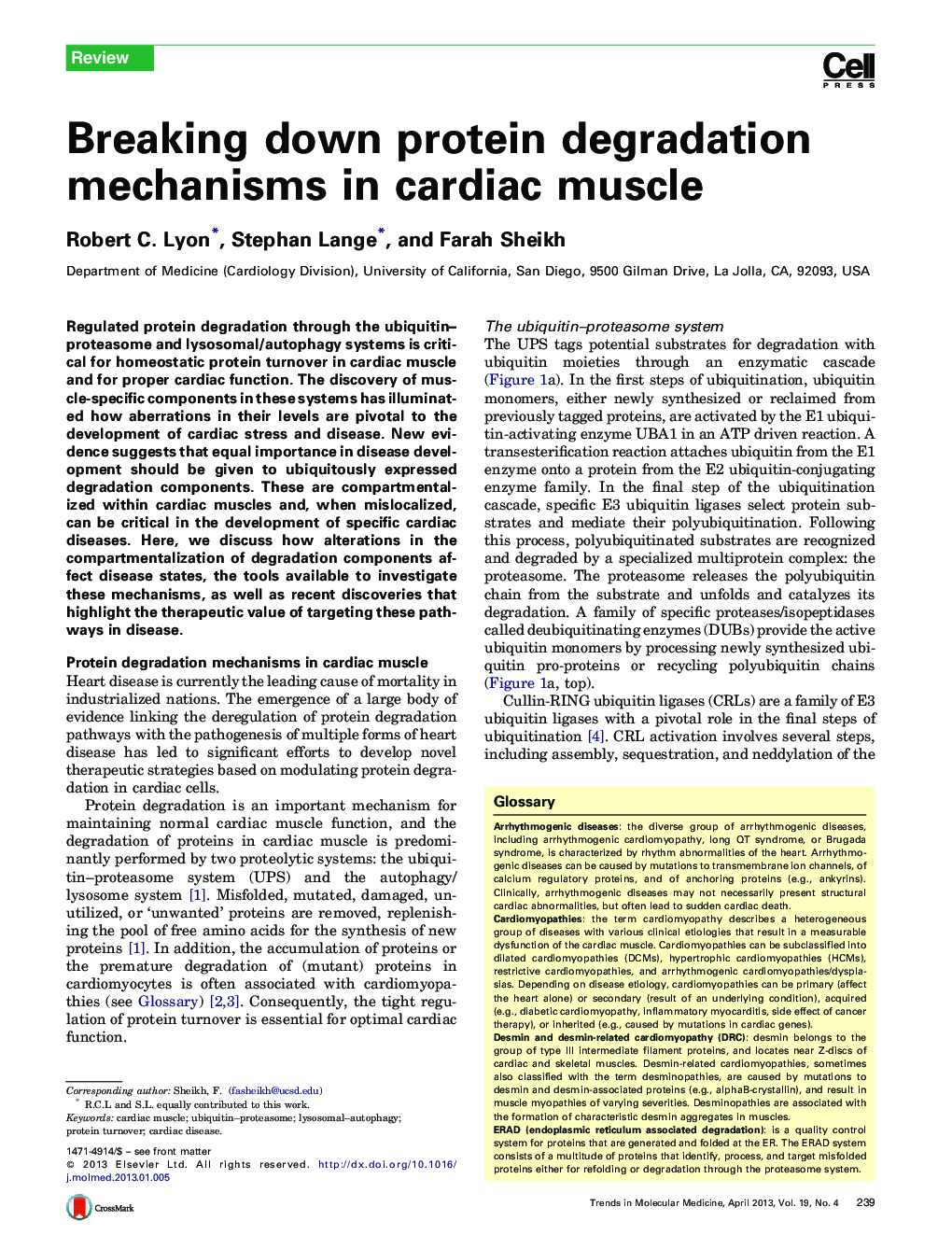| Article ID | Journal | Published Year | Pages | File Type |
|---|---|---|---|---|
| 2838675 | Trends in Molecular Medicine | 2013 | 11 Pages |
Regulated protein degradation through the ubiquitin–proteasome and lysosomal/autophagy systems is critical for homeostatic protein turnover in cardiac muscle and for proper cardiac function. The discovery of muscle-specific components in these systems has illuminated how aberrations in their levels are pivotal to the development of cardiac stress and disease. New evidence suggests that equal importance in disease development should be given to ubiquitously expressed degradation components. These are compartmentalized within cardiac muscles and, when mislocalized, can be critical in the development of specific cardiac diseases. Here, we discuss how alterations in the compartmentalization of degradation components affect disease states, the tools available to investigate these mechanisms, as well as recent discoveries that highlight the therapeutic value of targeting these pathways in disease.
